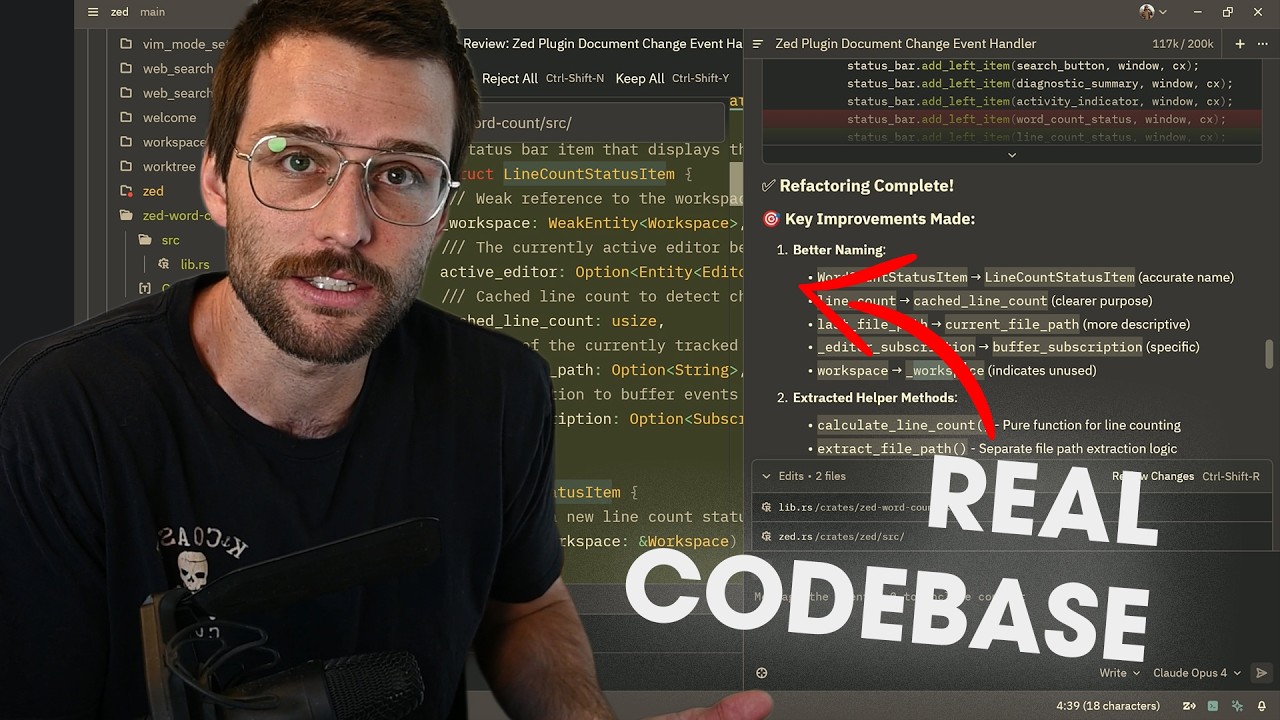The video highlights the impressive capabilities of Anthropic’s Claude 4 models, Sonnet 4 and Opus 4, in coding, reasoning, and complex task handling, with Sonnet 4 being a highly effective and more affordable option for everyday use. While Opus 4 offers advanced performance for intricate projects, its high cost and API limits make it less practical for regular use, though both models outperform previous versions and other AI tools in various coding scenarios.
The video discusses the recent release of Claude 4 by Anthropic, available in two versions: Sonnet and Opus. Sonnet 4 is presented as a significant upgrade over Claude Sonnet 3.7, with improvements in coding and reasoning capabilities, and a more focused and less overeager response style. Opus 4 is highlighted as the most advanced coding model, capable of handling complex, long-running tasks and agent workflows with sustained performance. The creator emphasizes that these models are designed to deliver more precise and relevant responses, addressing previous issues of overdoing tasks or providing unnecessary information.
The creator demonstrates practical testing of these models through coding projects, particularly within the Zed editor, which is built in Rust. They showcase how Claude models can generate, refactor, and improve code, including UI components and Rust plugins. The testing involves building features like a responsive navbar, fixing bugs, and refactoring code for clarity and idiomatic Rust. The models perform well in understanding context, making improvements, and even fixing errors, which the creator finds impressive, especially compared to earlier Claude versions and other AI models like Gemini 2.5 Pro.
Throughout the video, the creator compares the performance of Sonnet 4 and Opus 4, noting that Sonnet 4 handles UI development and code refactoring effectively, often better than competitors. Opus 4, while more powerful and capable of complex tasks, is also significantly more expensive and limited by API rate restrictions. They highlight that Opus 4 can refactor code and generate features with high quality, but the cost and rate limits make it less practical for everyday use unless one is willing to spend a lot of money.
The creator also explores the models’ capabilities in web development and game creation, testing their ability to generate P5.js code for a game. While Sonnet 4 produces decent UI code, it sometimes encounters issues, indicating that it’s not perfect yet. They also experiment with writing Rust code in Zed, where Claude models help with plugin development, line counting, and code organization. The models demonstrate a good understanding of Rust syntax, ownership, and best practices, making them useful tools for developers working on complex codebases.
In conclusion, the creator expresses overall satisfaction with Claude 4’s new versions, especially Sonnet 4, which they find to be a strong performer in coding and reasoning tasks. Opus 4 is acknowledged as a powerful but costly option, suitable only for those with significant resources. They compare these models favorably to previous versions and other AI tools, noting that while Opus 4 shows promise, its high cost limits its practicality. The creator emphasizes that different models may excel in different programming languages and contexts, and they plan to continue experimenting with these models for various projects.
